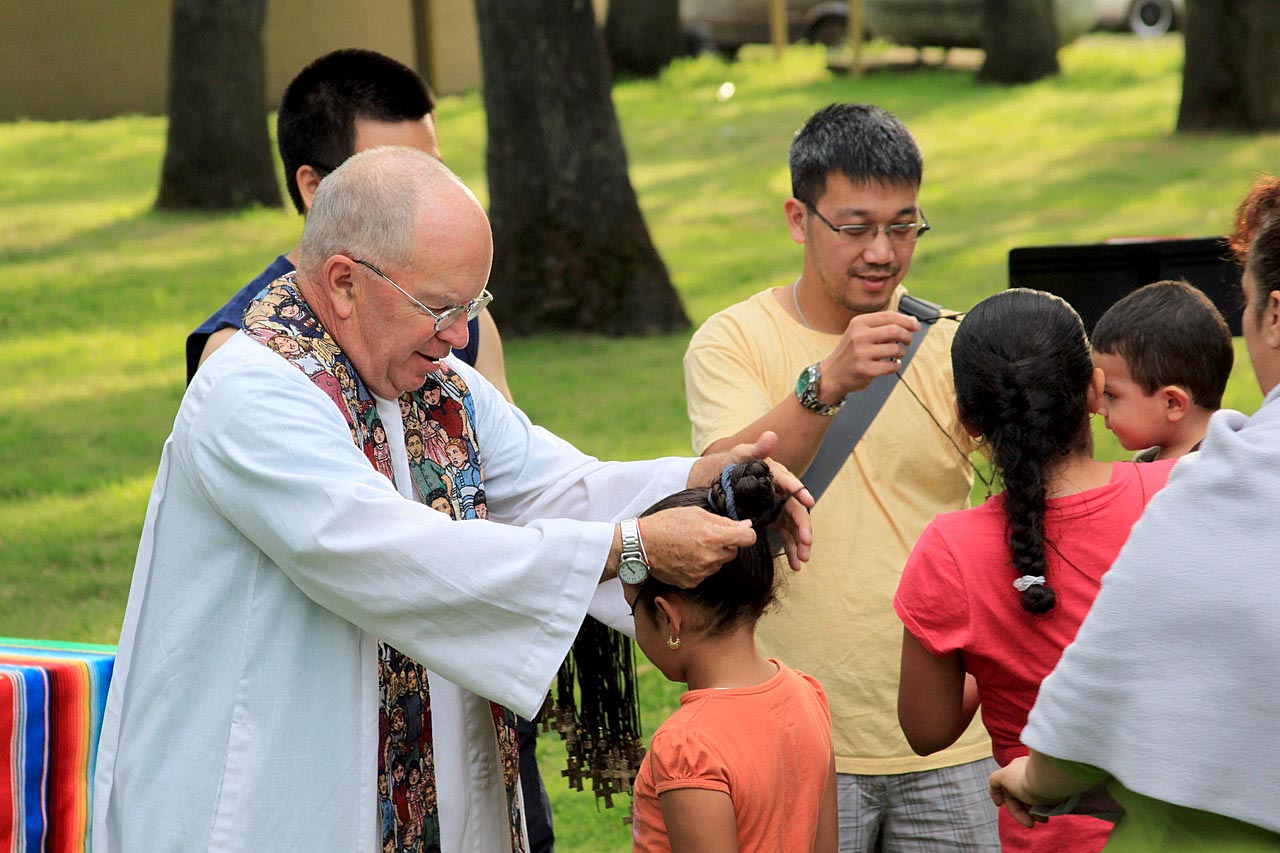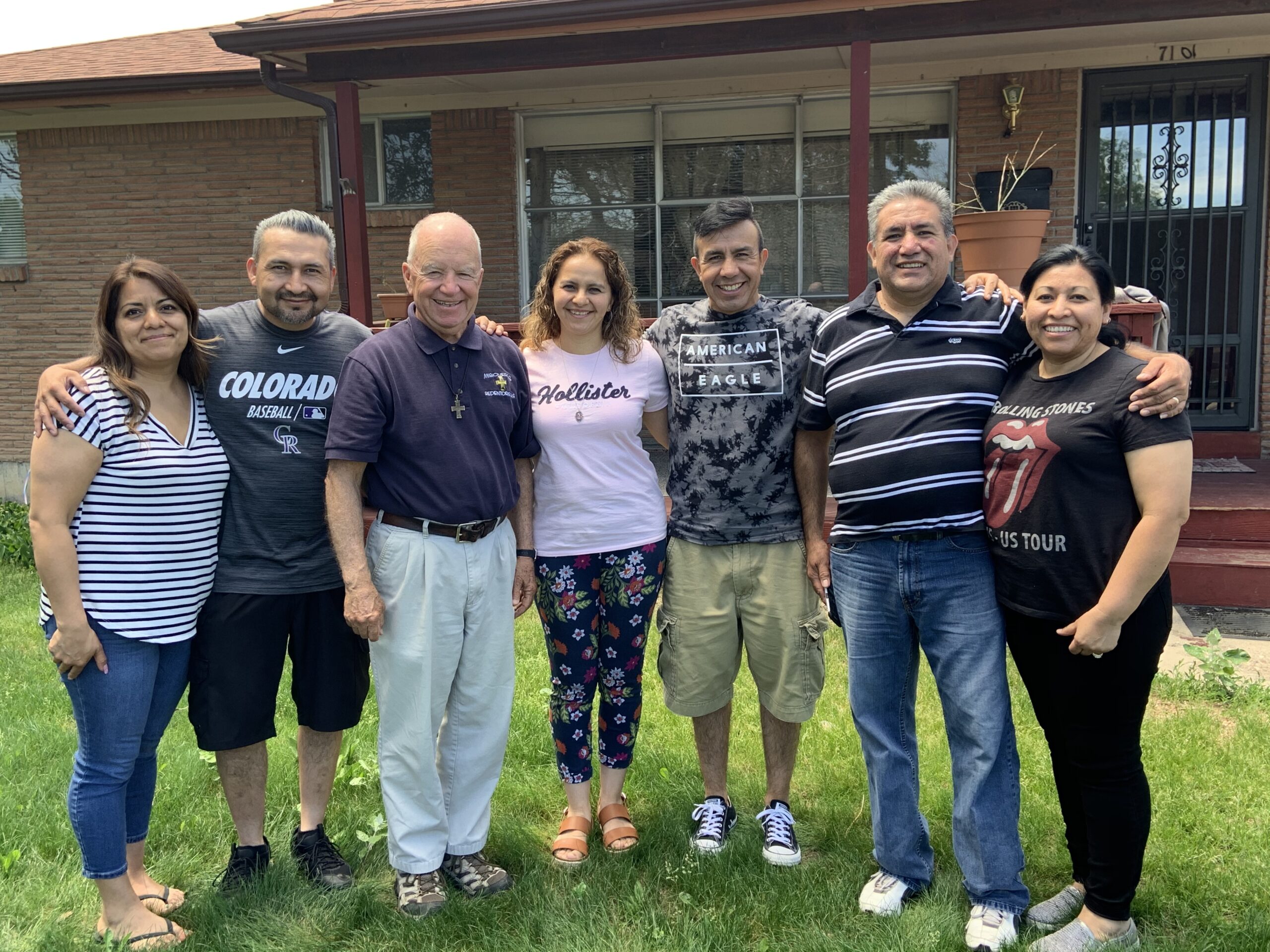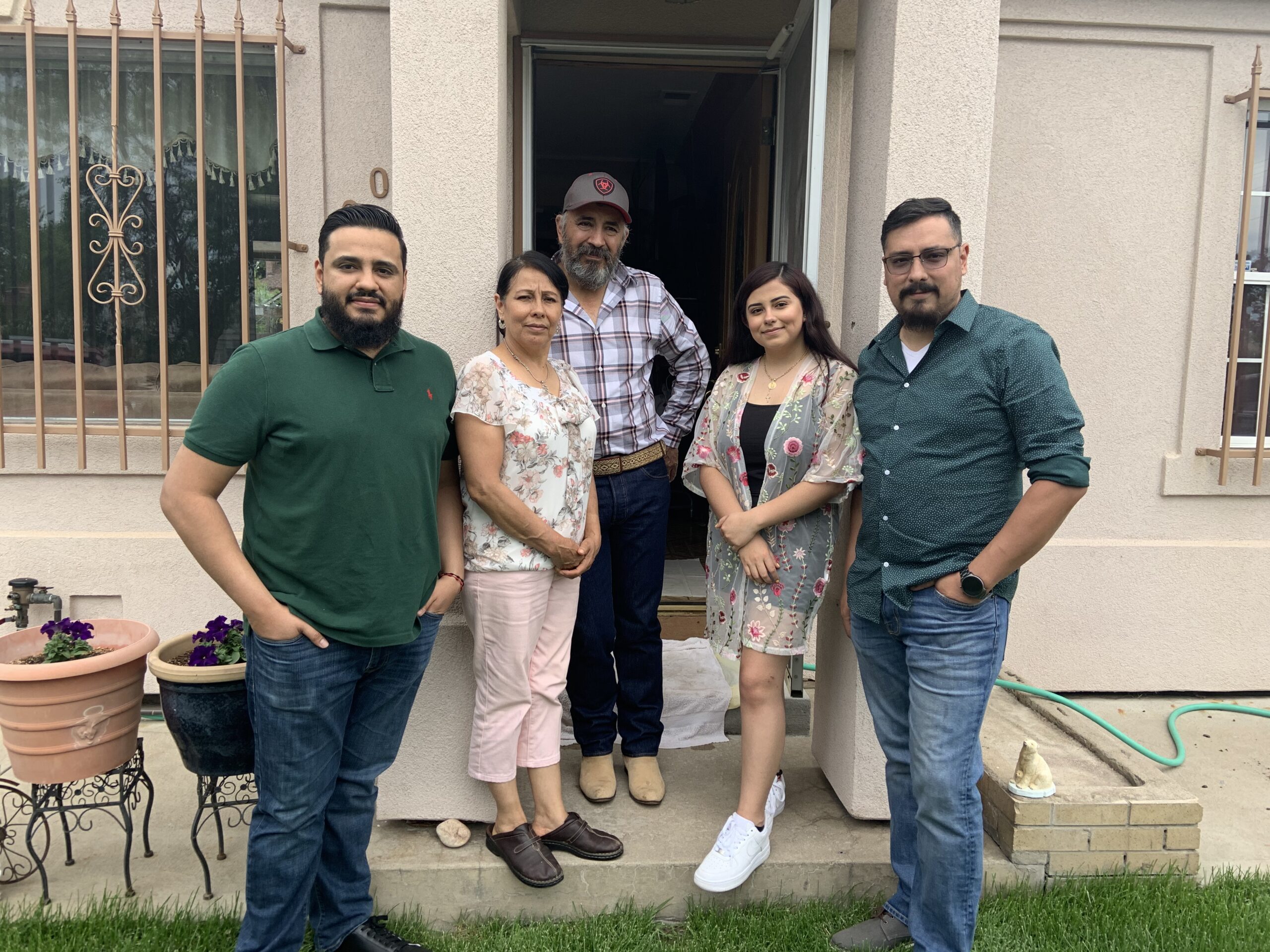Vocación – Llamado por nombre / Vocation – Called by Name
Una invitación a los jóvenes
¿Estás llamado por Dios? En la primera lectura de la misa hoy, Dios dijo a Ciro, “Te he llamado por tu nombre”. Por unos días voy a considerar mi vocación. Invito a jóvenes, hombres y mujeres escribirme preguntas o comentario si ustedes están escuchando a Dios en sus vidas. Lo que usted se revele es privado, y comprometo responder a sus cartas. Mi correo es: [email protected]
An invitation to youth
Are you called by God? In the first reading of today´s Mass, God said to Cyrus, “I have called you by your name.” For a few days I am going to consider my vocation. I invite young men and women to ask questions or to comment if you are listening to God in your life. Whatever you reveal is private, and I promise to answer your letters. My email is: [email protected]
Escuchando el llamado de Dios
Crecí en Holy Name. En la década de 1950 en Omaha, era común identificar dónde vivía por la parroquia católica donde residía. “¿Dónde vives?” “Vivo en Holy Name”. “Vivo en San Bernardo”. Mi madre creció en Holy Name, mi padre en San Bernardo. El territorio del Santo Nombre era pequeño. Si vivía a más de diez cuadras de la iglesia y la escuela, estaba en otra parroquia. En esa parroquia bastante pequeña en el territorio, había muchos niños. Nuestra escuela primaria y secundaria parroquial tenía más de 1,500 estudiantes, casi todos de la parroquia. Había pocos no católicos en el vecindario. Holy Name era una comunidad católica. Había muchas familias numerosas. Como el mayor de siete hermanos, siempre creí que nuestra familia era simplemente de tamaño modesto.
La vida en esos días se centraba en la familia, la parroquia y la escuela. La parroquia y la escuela eran lo mismo. Los domingos siempre eran especiales. La fe y la familia fueron los centros del día. Hubo misa por la mañana en Holy Name, y luego pasamos las tardes visitando a abuelos, primos y parientes de un lado de la familia o del otro. Teníamos casi 100 primos, la mayoría viviendo en Omaha.
Fue un tiempo maravilloso crecer en Holy Name. El barrio era nuestra familia. Fue poco después de la Segunda Guerra Mundial y había niños por todas partes. Jugamos en la calle. Jugamos en el patio de la escuela detrás del gimnasio. Jugamos frente a la escuela Clifton Hill, en la escuela para sordos y en el Fontenelle Boulevard. Jugábamos béisbol, fútbol y baloncesto cuando y donde podíamos. Los juegos fueron de campo, no estructurados y se eligieron bandos, no siempre divididos equitativamente. Nuestros campos no estaban bien desarrollados y de vez en cuando había pelea o argumento, pero se cultivaron amistades profundas en Holy Name. Fue un gran lugar para vivir.
Tuvimos una buenísima escuela. Las Servitas de María y los Redentoristas nos proporcionaron una excelente base académica. La escuela fue la envidia de Omaha después de la Segunda Guerra Mundial, los católicos se mudaron a Holy Name debido a la escuela. En South Omaha, las escuelas y parroquias católicas tenían identidades étnicas. Ese no fue el caso en North Omaha. Nuestros feligreses eran euroamericanos con muchos veteranos de la Segunda Guerra Mundial que buscaban dar a sus hijos una base sólida para la vida. Éramos una parroquia de niños cuyos padres y abuelos habían sido moldeados por la Primera Guerra Mundial, la Depresión y la Segunda Guerra Mundial.
Primeros signos de vocación religiosa
Fueron muchas vocaciones religiosas que comenzaron en el Holy Name, especialmente las de los Redentoristas y las Servitas de María. Varios redentoristas de la parroquia fueron a misiones en Brasil y Tailandia. Fue un placer cuando uno de ellos llegó a casa de vacaciones. Visitaron nuestras aulas mostrando fotografías y contando historias de la vida en la selva. Sus visitas tomarían el lugar de las clases regulares de religión. Siempre fue una gran ruptura con el “catecismo de Baltimore”. Cuando estábamos en sexto grado se nos pidió que escribiéramos tres carreras que esperábamos seguir. Escribí; un jugador de béisbol profesional, un golfista profesional o un misionero en Brasil. Las visitas de los misioneros hicieron que la vida del misionero pareciera una aventura.
Cuando mis hermanas estaban mudando a mi madre de nuestra casa a Emmanuel Village, una comunidad de ancianos, descubrieron entre los tesoros de mamá todas nuestras viejas boletas de calificaciones. No podían esperar para contarme uno de sus descubrimientos. Teresa dijo: “¿Sabías que reprobaste una clase en tercer grado?” Cuando no recordaba tal cosa, ella dijo: “¡Rechazaste la religión!”
Mi base en la fe vino de la familia, los amigos del Holy Name y los sacerdotes y hermanas de la parroquia. Asistí a misa con frecuencia, especialmente después de que comencé a ser monaguillo. Pude memorizar las respuestas en latín para la misa, pero nunca pude obtener la enseñanza del catecismo de Baltimore. Mis notas en religión fueron siempre las más bajas. Aún así, escuché una llamada, “Ven y sígueme”.
Hearing God Call
I grew up in Holy Name. In 1950’s Omaha, it was common to identify where you lived by the Catholic parish where you resided. “Where do you live?” “I live in Holy Name.” “I live in St. Bernard’s.” My mother grew up in Holy Name, my father in St. Bernard’s. The territory of Holy Name was small. If you lived more than ten blocks from the church and school, you were in another parish. In that rather small parish in territory, there were many children. Our parish grade school and high school had over 1,500 students, almost all from the parish. There were few non-Catholics in the neighborhood. Holy Name was a Catholic community. There were many large families. As the oldest of seven children, I always believed our family was simply of modest size.
Life in those days centered on family, parish and school. Parish and school were one and the same. Sundays were always special. Faith and family were the centers of the day. There was mass in the morning at Holy Name, and then we spent the afternoons visiting grandparents, cousins and relatives from one side of the family or the other. We had almost 100 cousins, most living in Omaha.
It was a wondrous time growing up in Holy Name. The neighborhood was as much family as our blood relatives. It was right after WWII, and there were kids everywhere. We played in the street. We played on the school playground behind the gym. We played in front of Clifton Hill school, at the school for the deaf and on the parking on Fontenelle Boulevard. We played baseball, football and basketball whenever and wherever we could. The games were sandlot, unstructured and sides were chosen, not always fairly divided. Our fields were not well developed, and we had many bad hops, scrapes, bruises and some bloody noses, but deep friendships were cultivated at Holy Name. It was a great place to live.
We had the best of schools. The Servants of Mary sisters and the Redemptorists provided us with a terrific academic foundation. The school was the envy of Omaha after WWII, Catholics moved into Holy Name because of the school. In South Omaha, the Catholic schools and parishes had ethnic identities. That was not the case in North Omaha. Our parishioners were euro-Americans with many veterans of WWII seeking to give their children a solid foundation for life. We were a parish of children whose parents and grandparents had been shaped by WWI, the Depression and WWII.
Early signs of a religious vocation
There were many religious vocations that began at Holy Name, especially to the Redemptorists and the Servants of Mary. Several Redemptorists from the parish went to missions in Brazil and Thailand. It was a treat when one of them came home for vacation. They visited our classrooms showing pictures and telling stories of life in the jungle. Their visits would take the place of regular religion classes. It was always a great break from the “Baltimore catechism.” When we were in sixth grade we were asked to write three careers we hoped to pursue. I wrote; a professional baseball player, a professional golfer or a missionary in Brazil. The visits by missionaries made the life of the missionary appear to be an adventure.
When my sisters were moving my mother from our old home to Emmanuel Village, a senior living community, they discovered amongst Mom’s treasures all of our old report cards. They could not wait to tell me one of their discoveries. Teresa said, “Did you know that you flunked a class in third grade?” When I did not remember such a thing, she said, “You flunked religion!”
My foundation in faith came from the family, Holy Name friends, and the priests and sisters in the parish. I attended Mass frequently, especially after I began to be an altar server. I was able to memorize the Latin responses for Mass, but I could never get the teaching of the Baltimore catechism. My grades in religion were always my lowest grades. Still, I heard a call, “Come and follow me.”





